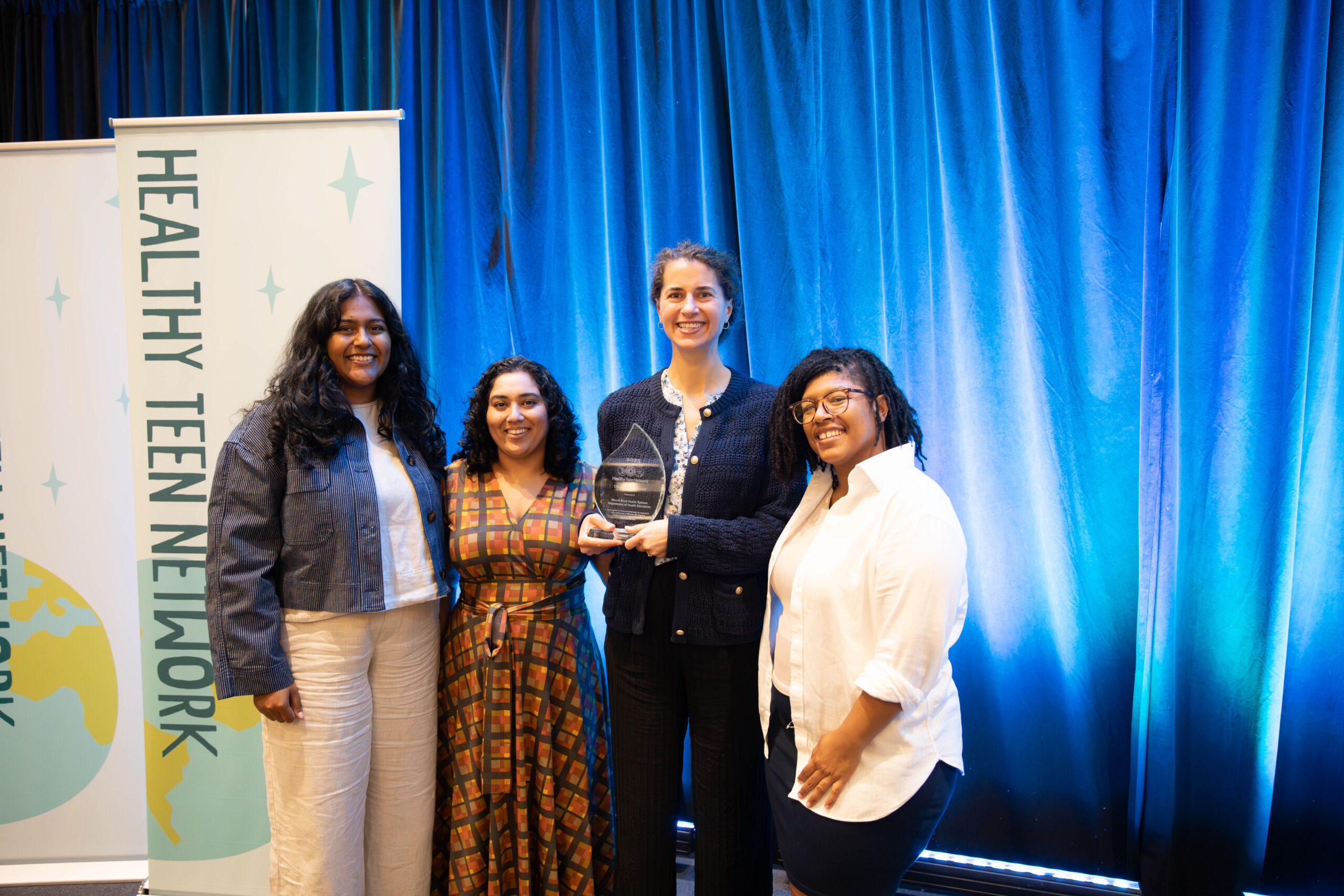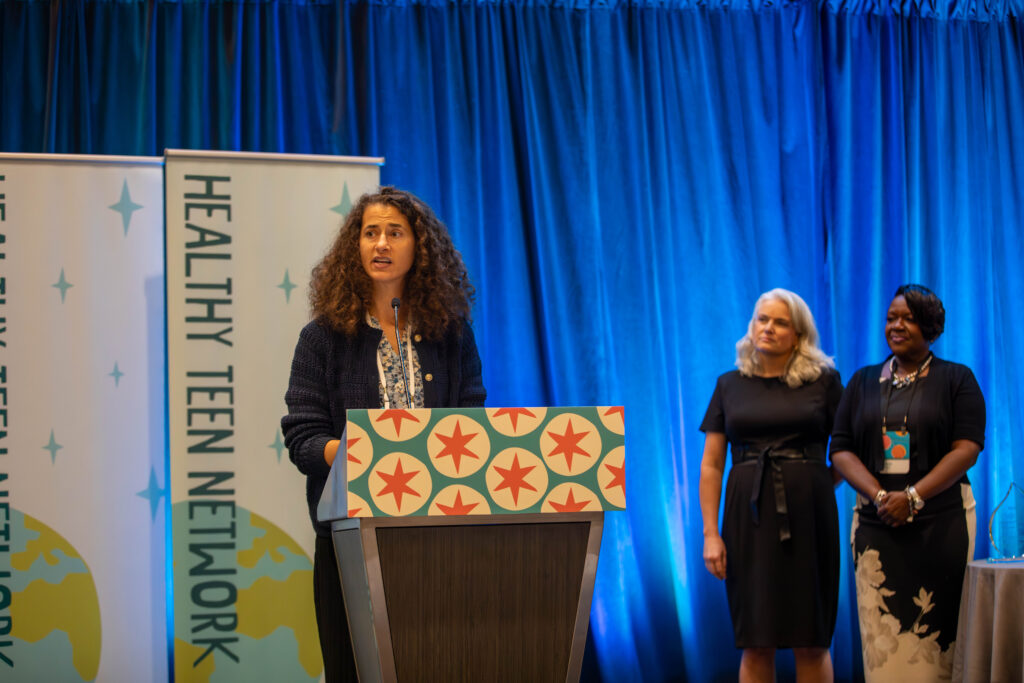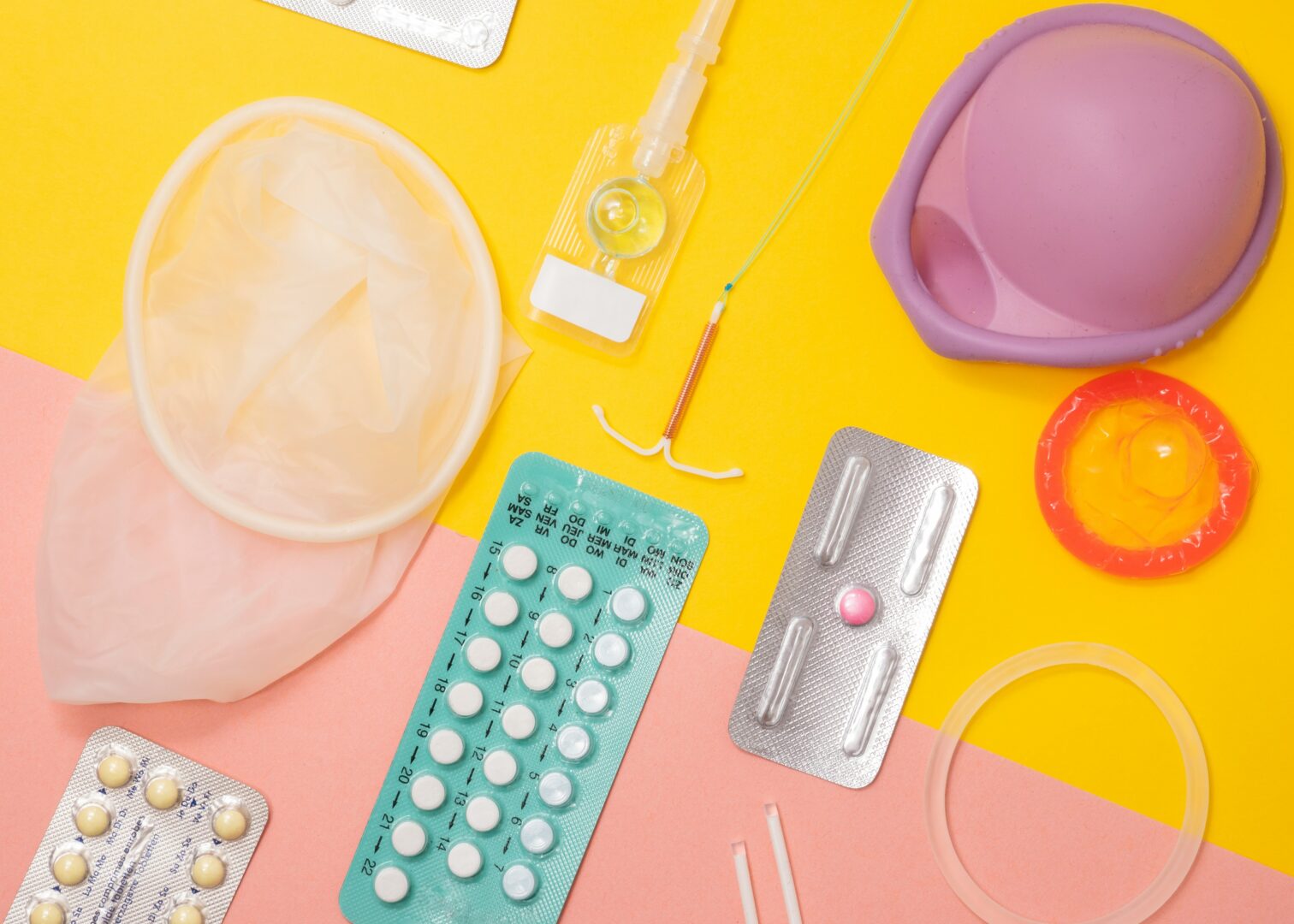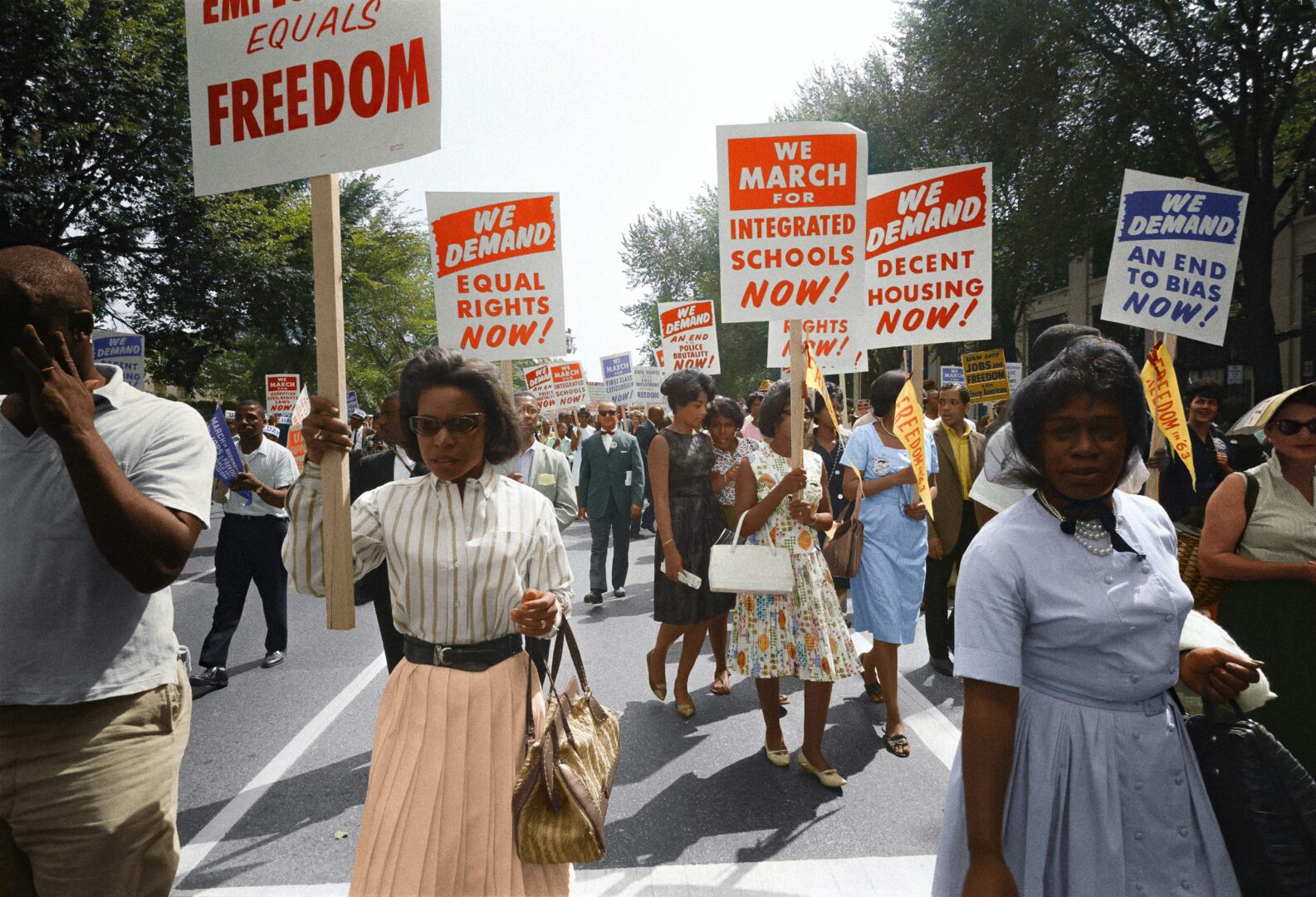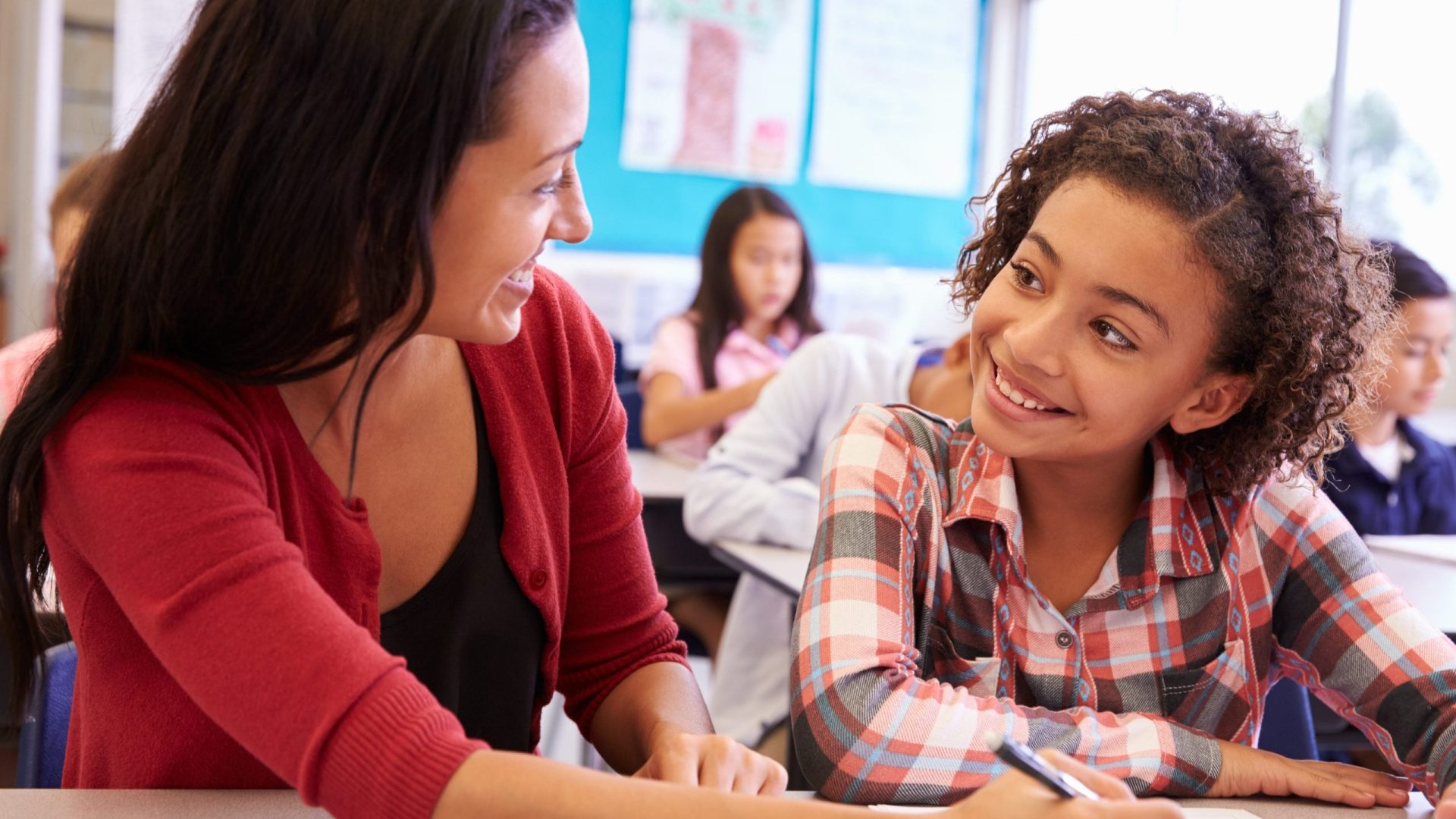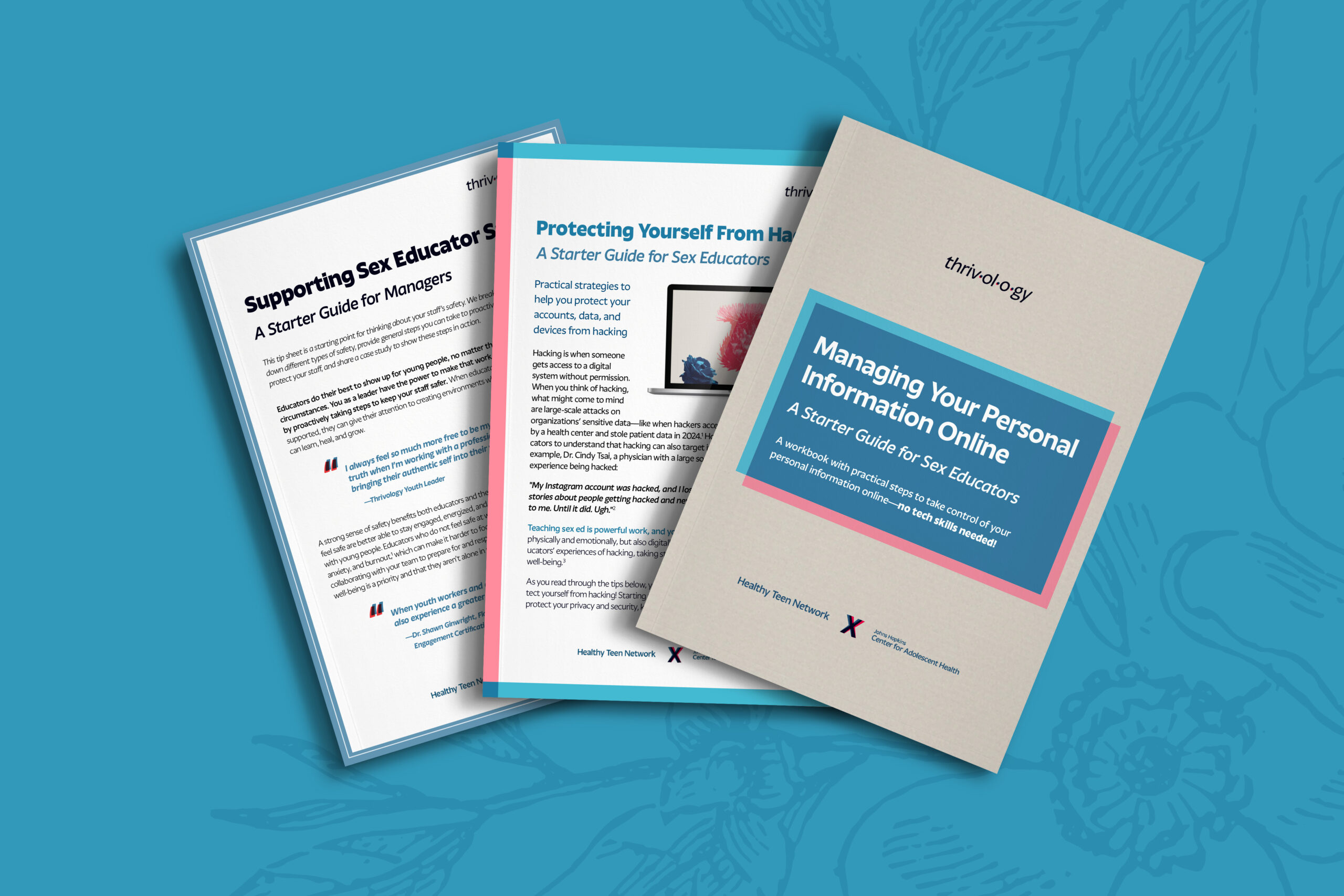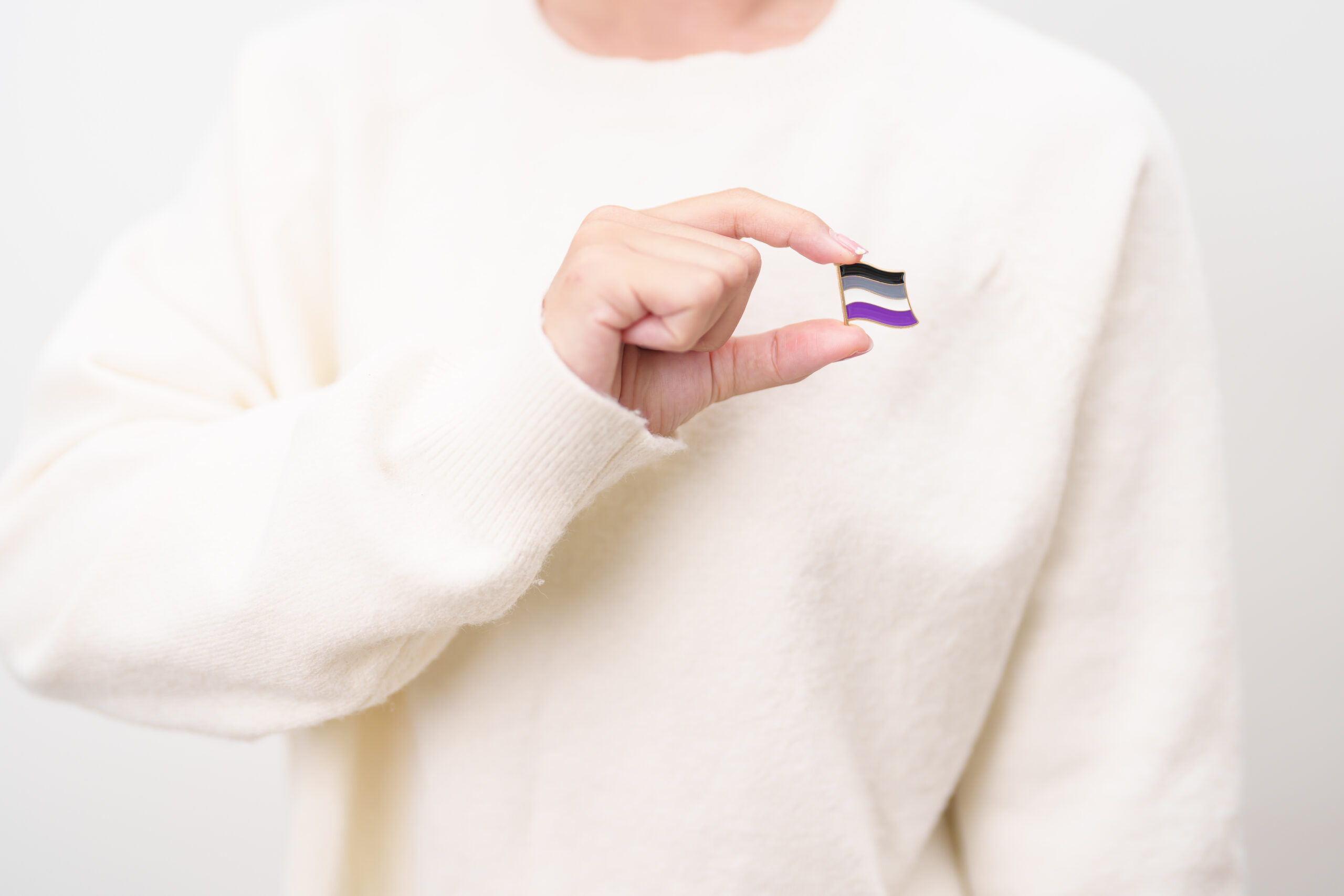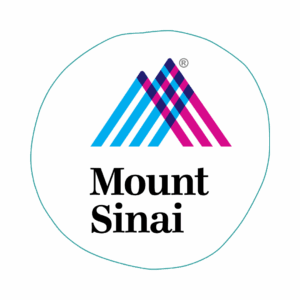
Mount Sinai Department of Health Education
October 30, 2025
The Healthy Teen Network Changemaker Award celebrates individuals or organizations who are unapologetically creating a world where every young person can be who they are and love who they love.
In a time of continued and escalating attacks on sexual and reproductive health rights, driven by ideology and partisan agendas, it is the changemakers who are making it happen. Through their dedication and hard work, changemakers are actualizing the vision of a world that affirms and celebrates them for who they are. Changemakers rebuff and replace harmful policies and practices that strip young people of their autonomy, rights, and identities, freeing them to become who they want to be.
Earlier this month, at the Healthy Teen Network annual conference in Atlanta, we presented the Mount Sinai Department of Health Education with the 2025 Changemaker Award. Alyssa Gale, MPH, accepted the award on behalf of the Mount Sinai Department of Health, and she shared more about their work in her acceptance:
Thank you for this tremendous honor, which I accept on behalf of my incredible team, Lajeanna Haughton, Visesha Ainapudi, and Sona Jani.
The Mount Sinai Department of Health Education provides youth programming that examines public health issues through a social justice lens. We teach original lessons on a variety of topics relevant to the lives of young people, from consent to mental health to gun violence and maternal health. In our teaching, we emphasize the importance of community-based advocacy and activism in improving community health by highlighting past and present movements that have reshaped how we understand public health problems and their attendant solutions.
We derive such strength and inspiration from the work we do, the youth we serve, and from the efforts of people like those who are in this room today.
This recognition comes at such a meaningful time for our team. I know that we are not alone in our anxieties about the current political climate, the state of public health, and the well-being of young people. We derive such strength and inspiration from the work we do, the youth we serve, and from the efforts of people like those who are in this room today. We are humbled and honored to be in community with you here at this conference.
Today, my team is being recognized as “changemakers,” so I want to speak a bit about our small piece of the work—our vision for transforming how things are done in traditional public health spaces.
Our goal is to advance a paradigm shift in public health settings where many young people do not always feel welcomed, valued, or represented; in places that have historically emphasized achievement as an indicator of worth, where degrees, titles, and credentials are often the sole signifiers of authority and expertise. Our goal is to dismantle hierarchy and gatekeeping and affirm that every young person has the right to learn about, participate in, and exert autonomy over the forces and conditions which impact their health and the health of their communities.
We do this by inviting all interested youth to apply to our programming, without any educational or extracurricular requirements. We ask only that they possess an interest in social justice and a commitment to showing up each day. We do this by promoting dialogue over lecture, making connections between past and present, and exploring how large-scale systems, structures, and policies impact our everyday experiences of the world.
We also do this by playing games, spending time on art projects, and fostering psychological safety and a sense of belonging. We do this by tending to the relationships developed in our space, and by centering affirmation as one of the most important features of our programming. We believe the simple fact that our young people have shown up in a space of communal learning and expressed their thoughts and feelings is something to be celebrated.
We do this by defining the concept of a “meaningful summer” as one in which our young people feel seen, cared for, and valued.
Because their feelings about their time with us are more important to us than any quantitative metric. It means more to us when one of our young people tells us that the affirming and inclusive sexual health education we provided made her feel she could have open conversations with her siblings about a topic that is considered taboo in her family. It means more to us when we have young people begin the program saying they’re generally “interested in maternal health” and end the program by saying they want to be “an OB-GYN nurse midwife working in a community setting alongside doulas and birth justice workers addressing the racial disparities in maternal and infant health.” It means everything to us when a former participant writes to us years later, saying they still think about their time with us as a transformative experience of activating their social consciousness.
I know the work we are all doing is one that stands in opposition to fear and intimidation and oppression, and centers vision and hope as an antidote to cynicism and nihilism.
I know the change we are trying to bring about is a change that, to a certain degree and in various ways, everyone in this room fights for each day—that all young people should feel capable of and supported in realizing their potential, and that that potential should know no bounds in its ability to impact the world around them. I know the work we are all doing is one that stands in opposition to fear and intimidation and oppression, and centers vision and hope as an antidote to cynicism and nihilism. Quite frankly, everyone doing this work deserves recognition for continuing to push forward in a society that so often cruelly pushes back. My team and I celebrate, honor, and thank everyone here at this conference for your vision, commitment, and courage. May we all continue to draw strength from one another and from the young people we serve, tapping into the abundance of wisdom and joy our youth offer as fuel for our continued commitments to advancing change. Thank you for this honor and this recognition.
PHOTOS BY: GINA DESIDERIO
The Mount Sinai Department of Health Education offers holistic, affirming, strengths-based youth programming for teens in the New York metropolitan area. With a focus on cultivating pride, connection, and investment in community health, they honor and celebrate the potential of all young people. Their summer programming provides teens with the opportunity to explore the intersections of public health, civic engagement, health justice, and community-based advocacy and activism. Read more about the Mount Sinai Department of Health Education.

